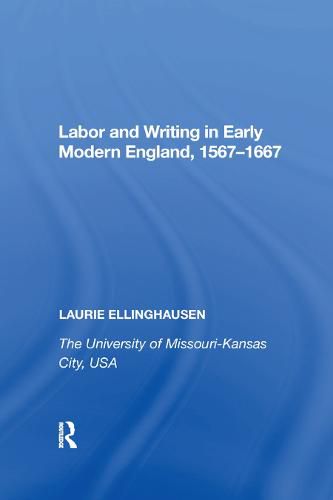Readings Newsletter
Become a Readings Member to make your shopping experience even easier.
Sign in or sign up for free!
You’re not far away from qualifying for FREE standard shipping within Australia
You’ve qualified for FREE standard shipping within Australia
The cart is loading…






Looking at texts by non-aristocratic authors, in this studythe author investigates the relationship between nascent early modern notions of professional authorship and the emerging idea of vocation - the sense that one’s identity is bound up in one’s work. The author analyzes how the concept of labor as a calling, which was assisted by early modern experiments in democracy, print, and Protestant religion, had a lasting effect on the history of authorship as a profession. In so doing, she reveals the construction of an approach to early modern authorship that values diligence over the courtly values of leisure and play. This study expands the scope of scholarship to develop a cultural history that acknowledges the considerable impact of non-aristocratic poets on the idea of authorship as a vocation. The author shows that our modern, post-Romantic notions of the professional writer as materially impoverished-and yet committed to his or her art-has recognizable roots in early modern England’s workaday lives.
$9.00 standard shipping within Australia
FREE standard shipping within Australia for orders over $100.00
Express & International shipping calculated at checkout
Looking at texts by non-aristocratic authors, in this studythe author investigates the relationship between nascent early modern notions of professional authorship and the emerging idea of vocation - the sense that one’s identity is bound up in one’s work. The author analyzes how the concept of labor as a calling, which was assisted by early modern experiments in democracy, print, and Protestant religion, had a lasting effect on the history of authorship as a profession. In so doing, she reveals the construction of an approach to early modern authorship that values diligence over the courtly values of leisure and play. This study expands the scope of scholarship to develop a cultural history that acknowledges the considerable impact of non-aristocratic poets on the idea of authorship as a vocation. The author shows that our modern, post-Romantic notions of the professional writer as materially impoverished-and yet committed to his or her art-has recognizable roots in early modern England’s workaday lives.